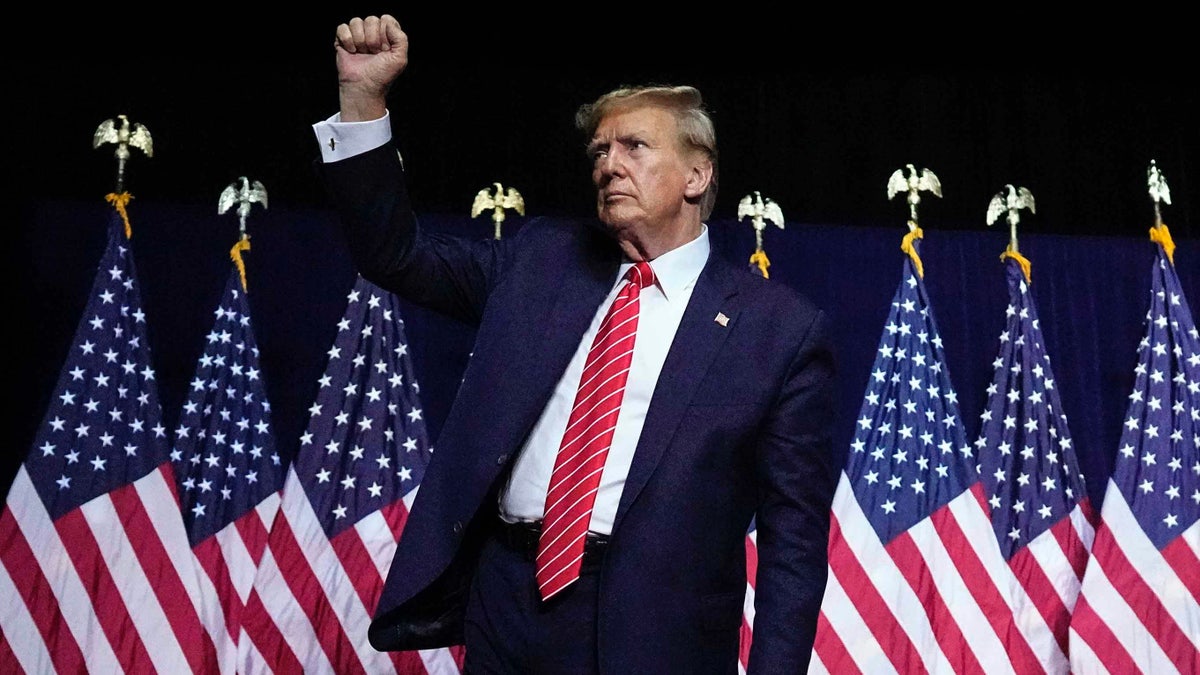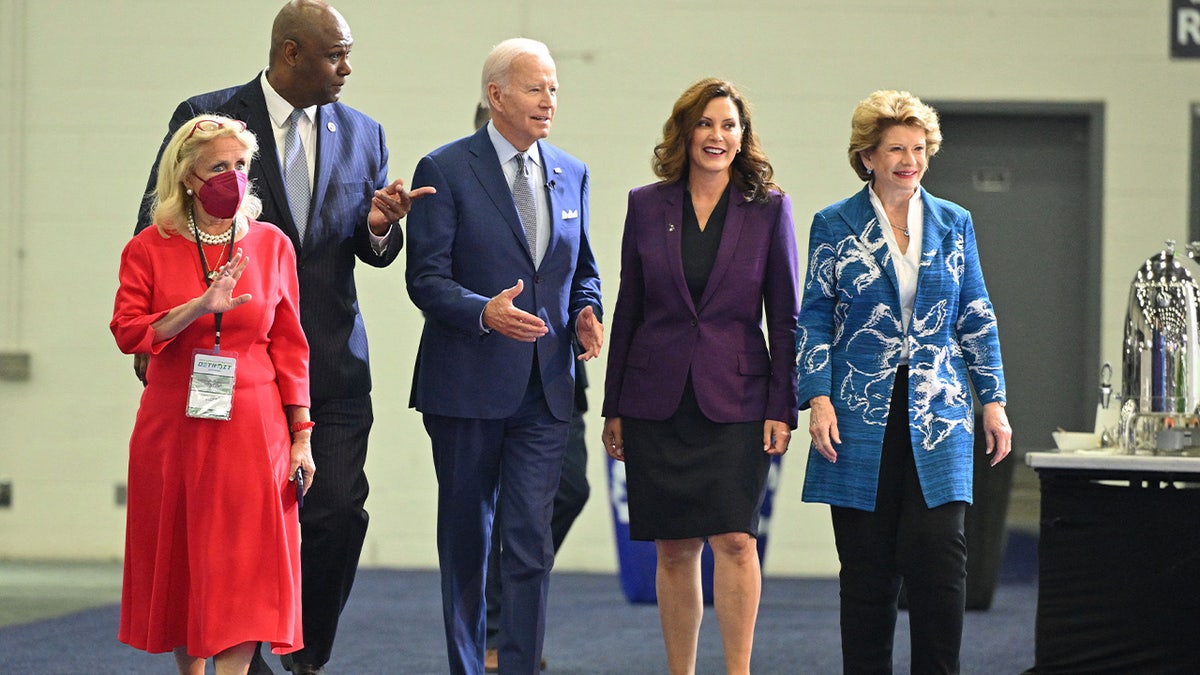Biden-Trump sequel underway in history-making first presidential election rematch since 1956

Minutes after they clinched the Democratic and Republican presidential nominations, President Biden and former President Donald Trump took aim at each other as their 2024 general election rematch fired up.
'Donald Trump is running a campaign of resentment, revenge, and retribution that threatens the very idea of America,' Biden argued in a statement as he targeted his Republican challenger.
And Trump, blasting his Democratic predecessor in the White House, charged in a social media post that Biden was 'the Worst, Most Incompetent, Corrupt, and Destructive President in the History of the United States.'
The 2024 rematch – which polls indicate most Americans are anything but enthused about – is now underway.
And the general election campaign started earlier than at any point in 20 years - when then-Sen. John Kerry of Massachusetts locked up the 2004 Democratic nomination in early March and faced Republican President George W. Bush.
The November showdown between Biden and Trump is the first rematch in the race for the White House since 1956, when Republican President Dwight D. Eisenhower defeated former Democratic Gov. Adlai Stevenson of Illinois as they faced off a second time.
Trump is aiming to become only the second president to serve two non-consecutive terms. That hasn't been accomplished in over 130 years, since Grover Cleveland, who won the White House in 1884 but lost re-election four years later, won back the presidency in 1892.
With over seven and a half months to go until Election Day on November 5, Trump enjoys the early edge in public opinion polling – both in most national surveys and in many of the polls in five of the six key battleground states where Biden narrowly topped Trump to win the White House in 2020.
But in another key metric – fundraising – Biden currently enjoys the upper hand.
The Biden-Trump rematch offers up stark contrasts when it comes to their style and demeanor, and on where they stand on key issues, such as the economy, health care and entitlements, immigration, abortion, foreign policy, the war in Ukraine, and America's overseas role going forward.
The 81-year-old Biden, who four years ago made history as the oldest American ever elected president, will continue to face questions about his mental and physical durability, even after last week's vigorous State of the Union address.
The president also needs to show that he can energize younger voters, progressives, and Black and Latino Americans, who are all key parts of the Democratic base. Biden is also facing primary ballot box protests - materializing in 'uncommitted' votes - over his support for Israel in its war in Gaza against Hamas.
The former president is also dealing with plenty of problems.
Trump, who last year made history as the first president or former president to face criminal charges, now faces four major trials and a total of 91 indictments – including federal cases on his efforts to overturn the 2020 presidential election and on handling classified documents. There's also a $355 million civil fraud judgment that Trump is appealing. He will have to juggle his appearances in court with his time on the campaign trail.
The 77-year-old Trump will also need to court the sizable block of Republican voters who backed Nikki Haley in the GOP nomination race. The former U.N. ambassador and former South Carolina governor was Trump's last remaining rival before ending her White House campaign last week. Haley's support is shining a spotlight on Trump's weakness with suburban and highly educated voters.
Complicating matters further – the presidential rematch between Biden and Trump won't be a two-candidate race.
Democratic-turned-Independent candidate Robert F. Kennedy Jr. is working to place his name on state ballots across the country. Kennedy, a longtime environmental activist and high-profile vaccine skeptic who's a scion of the famous Kennedy political dynasty, is grabbing double-digits in many general election polls.
Green Party candidate Jill Stein and progressive independent candidate Cornell West are polling in the single digits. And the centrist group No Labels is moving ahead with plans to launch a third party 'unity' presidential ticket.
While third party and independent candidates didn't play much of a role in the 2020 presidential election, they did in the 2016 showdown between Trump and Democratic nominee Hillary Clinton. And they may again in 2024.




